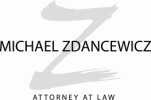 When a creditor gets a money judgment against a debtor, the creditor will search out the debtor’s income and assets in order to begin collecting on the judgment. The legal means of finding assets is known as “discovery in aid of execution.” (The legal term “discovery” refers to a different process.) Common procedures creditors use are: debtor’s examinations, written interrogatories, and/or court hearings during which the creditor asks the debtor about the debtor’s income and property.
When a creditor gets a money judgment against a debtor, the creditor will search out the debtor’s income and assets in order to begin collecting on the judgment. The legal means of finding assets is known as “discovery in aid of execution.” (The legal term “discovery” refers to a different process.) Common procedures creditors use are: debtor’s examinations, written interrogatories, and/or court hearings during which the creditor asks the debtor about the debtor’s income and property.
A creditor might expect that this information would be complete because the debtor is answering under the penalty of perjury, but that is not always the case. Sometimes assets are hidden or not found in obvious places. Before they can be frozen or garnished, assets must first be identified.
Places creditors can look for assets include:
▪ Bank records
▪ Copies of cancelled checks
▪ Deed records
▪ Payroll records from the debtor’s employer
▪ Tax returns
Other less obvious sources can include:
▪ Ongoing or potential lawsuits, including personal injury and insurance claims
▪ Lottery winnings
▪ Beneficial interests in trusts
▪ Retirement benefits, present or future
▪ Inheritances, including those currently in probate court
▪ Co-owned assets such as bank accounts, real estate, automobiles
Certain assets are protected by law from creditors. In Arizona, these exempt assets include:
▪ Homestead property (up to $150,000)
▪ Life insurance (individual)
▪ Annuities
▪ IRA accounts
▪ Pensions (certain types)
If you would like to know more about asset discovery, creditor’s rights, or need assistance from an attorney, contact Windtberg & Zdancewicz to schedule an initial consultation.
The attorneys at Windtberg & Zdancewicz, PLC, provide Arizona residents and businesses with experienced legal representation in all collection matters. We are experienced in creditor’s rights including garnishments, charging orders, attachment, property execution, trustee’s sales, foreclosures, judgments, judgment collection, domestication of foreign judgments, and creditor’s issues in bankruptcy cases. If you need assistance with your collection matters, please contact us at (480) 584-5660.
